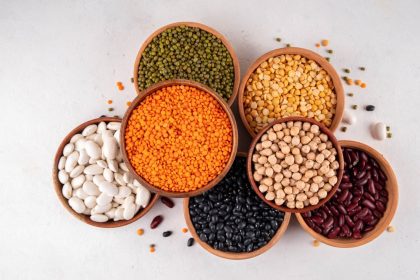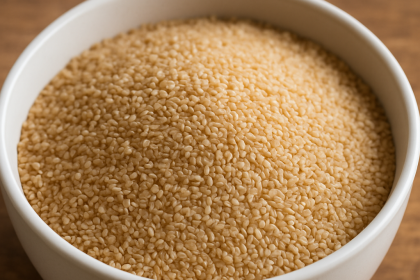Your immune system is your body’s first line of defense against harmful invaders, such as bacteria, viruses, and toxins. Maintaining its strength is essential for overall health, and the foods you eat can play a significant role in supporting its function. Understanding the best nutrient-packed foods and lifestyle practices for immune health is key to giving your body the resources it needs to stay strong.
Understanding immune system nutrition
The immune system functions through a complex network of cells, proteins, and organs. To support its ability to fight off harmful agents, your body requires a range of essential nutrients that promote cellular health and efficient immune responses. By focusing on nutrient-dense foods, you provide your body with the necessary tools to maintain an active defense.
Nutrient-rich foods for immune support
Fruits, vegetables, proteins, and healthy fats all contribute to strengthening immune responses. While many foods provide general health benefits, some contain higher concentrations of nutrients that specifically support immune health.
Power-packed produce choices
Certain fruits and vegetables are packed with antioxidants, vitamins, and minerals that play an important role in immune defense. These power-packed foods can help combat inflammation and neutralize free radicals that damage immune cells.
Leafy greens
Greens like kale, spinach, and Swiss chard are rich in immune-supporting nutrients. Kale is known for its high folate content, while spinach offers potent antioxidants that reduce oxidative stress in the body. Swiss chard contains significant amounts of vitamins A and C, both essential for immune health.
Colorful vegetables
Sweet potatoes, bell peppers, and carrots are also key players. Sweet potatoes are a beta-carotene powerhouse, while bell peppers offer an excellent dose of vitamin C—vital for strengthening immune defenses. Carrots, rich in carotenoids, provide additional antioxidant properties that enhance immune responses.
Protein sources for immune strength
Protein is a critical macronutrient for immune function. It provides the body with the amino acids needed to create antibodies and fight infections. Both animal and plant-based sources offer unique benefits to your immune health.
Animal-based proteins
Eggs are an excellent choice, providing complete protein and selenium, which are both essential for proper immune system function. Chicken and turkey are also important, offering essential amino acids and zinc, two nutrients that help regulate immune responses.
Plant-based alternatives
Lentils, quinoa, and chickpeas serve as protein-rich options for vegetarians and vegans. Lentils provide a combination of protein and iron, both crucial for optimal immune function. Quinoa is a complete protein, offering all nine essential amino acids, while chickpeas are rich in zinc and fiber, both of which support immune health.
Immune-boosting superfoods
Superfoods are nutrient-dense foods that have an exceptional ability to boost your immune system and protect against illness. By incorporating these foods into your daily meals, you can give your body an added layer of protection against harmful invaders.
Citrus fruits
Oranges, lemons, and grapefruits are widely known for their high vitamin C content. Vitamin C is essential for immune cell function, helping to stimulate the production of white blood cells and antibodies that fight infections.
Berries and more
Blueberries, strawberries, and pomegranates are rich in antioxidants and polyphenols. These compounds reduce oxidative stress and support immune cells in combating pathogens. Pomegranates, in particular, are loaded with immune-boosting polyphenols, which help regulate inflammation in the body.
Strategic meal planning for immune support
Effective meal planning is key to ensuring consistent nutrient intake and maximizing immune health. A well-rounded diet that includes a variety of immune-boosting foods can provide the nutrients your body needs to function at its best.
Breakfast optimization
Start the day with a combination of protein, fruits, and immune-boosting spices. Include probiotic-rich foods like yogurt, which support gut health and immune function. Spices like turmeric and ginger also help reduce inflammation and support a healthy immune system.
Lunch and dinner strategies
At lunchtime and dinner, aim to layer multiple nutrient sources in each meal. Combine lean proteins, such as chicken or lentils, with colorful vegetables and fermented foods, like kimchi or sauerkraut, to promote a healthy gut and support overall immune function. Incorporating immune-boosting herbs like garlic, thyme, and oregano can also enhance your meals’ immune-supporting properties.
Supporting immune health through lifestyle factors
Nutrition is essential, but your immune system thrives when supported by other healthy lifestyle choices. Adequate sleep, regular exercise, and stress management all contribute to keeping your immune system strong.
Sleep optimization
Sleep is a powerful tool for supporting immune health. A consistent sleep schedule and a restful environment are necessary for proper immune function. Aim for 7-9 hours of sleep per night to help your body repair itself and maintain strong immune defenses.
Exercise integration
Moderate, regular exercise is known to boost immune function by promoting circulation and reducing stress. Exercise helps improve overall health, making the body better equipped to fight off infections.
Stress management
Chronic stress weakens the immune system, making the body more susceptible to illness. Practicing stress-reduction techniques, such as yoga, meditation, or deep breathing, can help lower stress levels and support immune health.
Practical implementation for long-term immune support
Incorporating immune-boosting foods and lifestyle practices into your daily routine requires consistency and planning. To maintain a healthy immune system, make these habits a regular part of your life.
Daily practices
Incorporate a morning immune ritual by starting each day with a nutrient-packed breakfast that includes fruits, vegetables, and protein. During the day, practice strategic snacking by choosing immune-boosting options like nuts, berries, or yogurt. In the evening, focus on winding down and preparing your body for rest.
Meal preparation
Prepare your meals in advance to ensure you always have access to immune-boosting foods. Batch cook complex carbohydrates and protein sources, and keep seasonal ingredients on hand for easy meal preparation.
Supporting your immune system through nutrition and lifestyle choices is a holistic approach that can keep your body strong and resilient against illness. By focusing on a balanced diet and consistent healthy habits, you can build a strong foundation for optimal health and immune function.















